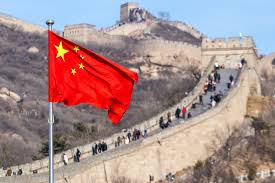
China has criticized US government procurement policies and practices in its recent report on the United States’ compliance with its WTO obligations. As Inside U.S. Trade has pointed out, the report "focuses on a number of issues that China has previously raised at the WTO, including U.S. tariffs on Chinese goods under Section 301 of the Trade Act of 1974, the Inflation Reduction Act, export controls and other measures.” It also complains about “Buy American” policies and US laws that target China in prohibiting federal agencies from purchasing from its enterprises. China charges that US policies violate the WTO Government Procurement Agreement (GPA), notwithstanding that China is not a party to that agreement and has no rights to participate in US procurement.
China’s Ministry of Commerce (MOFCOM) issued the report, 2024 Report on WTO Compliance of the United States,” on September 12—for the second year in a row. MOFCOM alleges that the US engages in unilateralism and practices that include abusing the WTO national security exceptions, practicing economic coercion, implementing protectionist industrial policies, “providing hefty subsidies to domestic industries under the excuse of ‘addressing climate change,’" coercing enterprises not to expand investments or export products to members that compete with the US.
The report criticizes the “Buy American” policies, beginning with President Trump’s 2017 executive order and continuing with President Biden’s 2021 “Made in America” order, increases in domestic content requirements, and requirements that all building materials used in federal infrastructure projects be made in the US. China asserts in the report that as a WTO Member, the US must ensure that its “Buy American” policy “is consistent with its obligations under the WTO agreements.” It contends that the “Buy American” policy is inconsistent with the GPA’s basic principle of non-discriminatory treatment, even though the US excludes from its GPA commitments most procurement covered by domestic preferences.
In the report, MOFCOM cites National Defense Authorization Acts (NDAA) for fiscal years 2019-2024 for imposing restrictions directly on China:
-- FY2019 NDAA prohibits federal agencies from purchasing communication equipment and services from certain Chinese enterprises.
-- FY2020 NDAA prohibits the use of federal funds for the purchase of rail transit vehicles or commuter buses produced by Chinese state-owned, controlled, or subsidized enterprises, “even if the products of the Chinese enterprises meet the federal localized procurement requirements.”
-- FY2021 NDAA prohibits the Department of Defense (DoD) from procuring any product or service from certain Chinese military companies.
-- FY2022 NDAA prohibits DoD from purchasing personal protective equipment from countries such as China without obtaining a waiver.
-- FY2023 NDAA prohibits federal agencies, starting in 2027, from procuring or using semiconductors or semiconductor products made by certain Chinese companies.
-- FY2024 NDAA prohibits DoD, beginning in October 2027, from using appropriated funds to procure batteries produced, processed, and assembled by certain Chinese enterprises.
The report concludes that “Against this backdrop, the Chinese-funded enterprises in relevant fields in the U.S. are also continuously disadvantaged in participating in the U.S. government procurement.”
Since the US does not have any procurement obligations with China under the WTO (or any other agreement), it is unclear how US procurement practices, including their exclusion of China, are relevant to a report on US compliance with the WTO. Moreover, under US law, the federal government is prohibited from purchasing from China and other countries that are not parties to the GPA or bilateral agreements, except under certain conditions, such as unavailability of products that are made in the US or in trade agreement countries.
China’s report echoes one issued annually by the US Trade Representative (USTR) on China’s compliance with the WTO, as required by Congress. In February 2024, USTR released its 22nd report on China’s WTO compliance. That report pointed out, inter alia, that China has yet to fulfill a more than two-decades old commitment to accede to the GPA and open its government procurement market to the US and other GPA parties. Although China followed its 2007 application for GPA membership with seven market access offers, it has yet to complete the negotiations. Until it becomes a GPA member, it has no rights to participate in procurement that the US covers under the GPA or any US procurement.
Jean Heilman Grier
September 19, 2024
Related Posts
WTO's 2024 China Review: Government Procurement
China Launches Investigation of EU's Foreign Subsidies Regulation
Post Permalink: https://trade.djaghe.com/9036-2/

